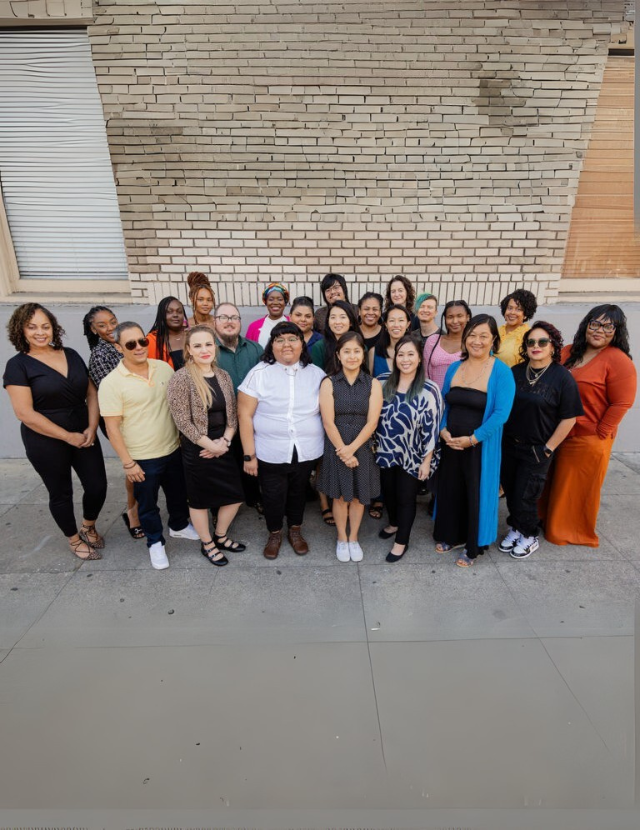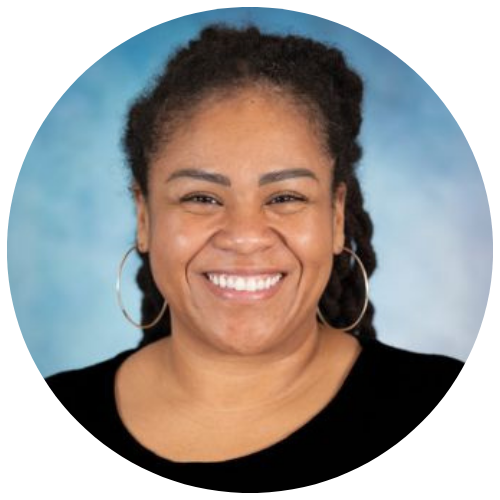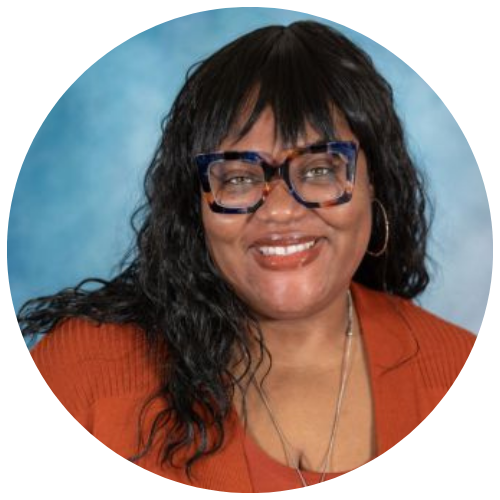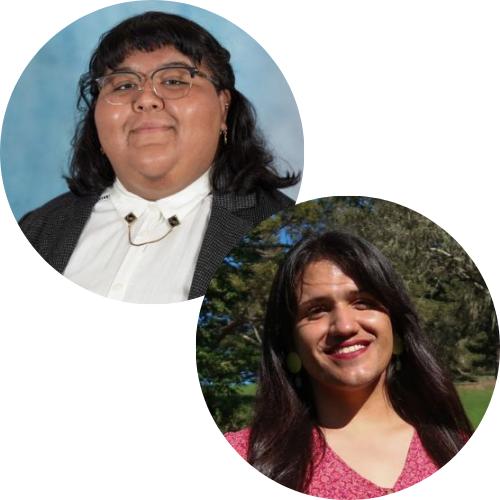Rise Up Leaders Help to Strengthen Justice Initiatives in California Communities
Program
Highlights

Meet these visionary leaders who completed PHI's Rise Up Leadership and Advocacy Accelerator program in 2024. Their work aims to create a more equitable and just California and focuses on expanding birth equity, financial stability, health care access for Black infants and mothers, housing protections, and indigenous justice.
Visionary leaders from PHI’s Rise Up are working to strengthen education, health, economic opportunity, and gender equity across California. This powerful group of leaders, with diverse backgrounds and lived experiences, completed Rise Up’s Leadership and Advocacy Accelerator in 2024 and had the opportunity to apply for competitive grant funding to put their bold ideas into action. Rise Up is thrilled to announce that they are providing more than half a million dollars in funding for six projects addressing critical challenges facing women and girls across the state. These leaders are working to expand birth equity, financial stability, health care access for Black infants and mothers, housing protections, and indigenous justice.
Learn more about the following Rise Up Leaders and their transformative projects that will help create a more equitable and just California:

California Birth-Center Accreditation and Sustainability (CABAS) Project
Olivia Favela-Gary and the California Nurse-Midwives Foundation are working to improve maternal and newborn health outcomes by making community birth centers more available to families across California. Olivia’s project tackles a key barrier to expanding birth center access: the high cost of getting birth centers officially accredited. The project will increase access to midwifery care for BIPOC and low-income families, reduce birth disparities, and promote birth equity across California. Long-term, this project aims to create a more inclusive, sustainable, and community-driven maternity care system.

Equity From the Start: Financial Initiative for Marginalized Families in Oakland
Angela Louie Howard and Tanya Brownrigg are creating a safety net for families in crisis throughout Alameda County. Through their organizations, Lotus Bloom and the Victims Empowerment Support Team, Angela and Tanya are advocating for dedicated funding to help families overcome unexpected financial emergencies. Building on a successful program that has already helped 780 families with financial stability during tough times, they’re pushing to make quick, flexible financial support permanently available to families who need it most.

Breastfeeding Task Force of Greater Los Angeles
Jennifer Roberson and the Breastfeeding Task Force of Greater Los Angeles are working to reduce health disparities for Black infants and mothers by improving the Black Infant Health Program (BIH). This project will push for policy changes that would reduce BIH hiring barriers to allow more experienced Black women to take leadership roles and ensure equitable funding distribution so that community-based organizations receive the support they need to provide frontline services to Black families.

Tenant Protections for the City of Gilroy to Support Gender Equity and Housing
Jacqueline Chan and United Way Bay Area are advancing housing justice in Gilroy through a collaborative effort to strengthen tenant protections. This project is building a coalition of community organizations and local leaders to develop a comprehensive Tenant Protection Ordinance. The ordinance will address the unique challenges faced by vulnerable renters, especially women and LGBTQ+ individuals, by providing enhanced eviction protections during the school year, stronger relocation assistance, and safeguards against harassment. By increasing awareness of tenant rights and working closely with elected officials, this project aims to create lasting systems for housing stability in Gilroy.

Indigenous Women, Girls, and 2Spirit Relatives Deserve Dignity
Ashley Rojas and Indigenous Justice are working to tackle the Missing and Murdered Indigenous Persons (MMIP) crisis and create protections for vulnerable Indigenous women, girls, and 2Spirit* individuals. Ashley and her organization plan to partner with San Francisco officials to launch California’s first Guaranteed Income Pilot Program (GIPP) for Indigenous survivors of violence, which will ensure economic stability for impacted community members. The income program will be evaluated and its findings, along with the lived experiences of participants, and will be used to educate lawmakers on the needs of Indigenous communities. This approach aims to drive systemic change by reforming existing policy gaps and empowering Indigenous communities to have greater control over their safety and justice systems.

Make It Real: Implementation of TQ2S+ Youth Legislation
Yozantli Lagunas Guerrer, J. Gia Loving, and the Genders & Sexualities Alliance Network are working to make sure California schools protect trans, queer, and Two-Spirit* (TQ2S+) youth from discrimination. Despite existing legal protections, TQ2S+ students continue to face significant discrimination at school. This project will mobilize Gay-Straight Alliance (GSA) clubs across the state and use youth organizing and storytelling to push for full compliance with these laws, ensuring schools are safe and inclusive. Their goal is to close the gap between policy and practice, leading to long-term systemic change where TQ2S+ students are respected and supported in their educational environments.
*2Spirit or Two-Spirit refers to a gender identity specific to Native American and Indigenous peoples, signifying individuals who embody both masculine and feminine traits, often with a spiritual understanding that transcends the Western binary of male and female.
A version of this impact story first appeared in Rise Up’s newsletter and on their website.
Work With Us
You change the world. We do the rest. Explore fiscal sponsorship at PHI.
Support Us
Together, we can accelerate our response to public health’s most critical issues.
Find Employment
Begin your career at the Public Health Institute.
